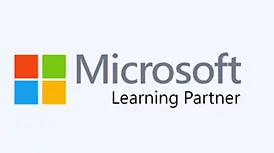Course Details
Course Description:
The Microsoft Dataverse for Teams course will guide students through designing low-code applications, automated processes, and chatbots directly in Microsoft Teams by leveraging Microsoft Dataverse for Teams and how to use further tools to design reports.
The course is focused on end-users, rather than administrations, who are looking to create new ways of working that are consumed within Microsoft Teams.
Microsoft Dataverse has two versions, a more comprehensive subscription service, known as Dataverse, and a free service which is part of your Microsoft Teams license called Microsoft Dataverse for Teams, that is consumed directly from within Microsoft Teams.
Students will learn about the differences between these services, what are the limitations of Microsoft Dataverse for Teams and when to use each service. Students will then learn how Microsoft Dataverse for Teams can be leveraged by Microsoft Power Apps, Microsoft Power Virtual Agents, Power BI, and Microsoft Power Automate.
Who Should Attend
Individuals who are taking the lead in integrating data and applications inside of the Teams environment. This class is for end-users and power users of Teams.
An Introduction to Microsoft 365
In this module, we cover how to add the Power Apps for Teams app, directly to Microsoft Teams, which will become our hub for designing business solutions. We will also provide a brief overview of the Microsoft Teams interface to discuss key elements that are essential to Microsoft Dataverse for Teams creations. This module covers the following lessons:
- Microsoft Dataverse
- What is the Power Platform?
- Licensing for Microsoft Dataverse
- Licensing for the Power Platform
- What is Microsoft Dataverse for Teams?
- Database terminology
- Chatbots, apps, and flows
- Usage scenarios and limitations
- Power BI in Microsoft Teams
- An overview of Microsoft Teams
- Where can you use Microsoft Teams?
- The desktop app interface
- Pining apps in Microsoft Teams
Setting up tables
This module will cover how to set up tables in your Microsoft Dataverse for Teams environment. Each Team utilizing Microsoft Dataverse for Teams has its own environment where you can design your database. You can create tables, columns, rows, views, and relationships to model your data. The tables that you design can be used to support your apps, chatbots, reports, and flows, acting as a centralized data source that you can tap into. Ensuring your data tables are correctly configured and secured is essential for success in other areas of Microsoft Dataverse for Teams. This module covers the following lessons:
- Getting started with tables
- Creating an environment for a Team
- Creating a new table
- Table settings
- Adding columns
- Database terminology
- Choice columns
- Creating table relationships
- Designing new views
- Table security
- Deleting tables
In this module, we will design the interfaces that your Team’s members are going to use to add new rows of data to your tables. We will introduce you to Power Apps for Teams which is tailored to work with Microsoft Dataverse for Teams. The app itself can be based on an existing sample or you can choose to create your own app. This module will also cover adding components to your apps, writing formulas, introducing media, and using variables. We will then show you how to test, publish and use our apps within a Team. Discussed in this module are the following lessons:
- An introduction to Power Apps
- Power Apps services
- The Power Apps interface
- Creating a new app from a sample
- Create a blank app
- Working with screens
- Connecting to data sources
- Adding and editing controls
- Introducing formulas
- Using variables
- Media
- Testing an app
- App settings
- Publish to Teams
- Broad distribution apps
Designing chatbots
In this module, we will cover using Power Virtual Agents within Microsoft Teams. Power Virtual Agents allows us to design chatbots. A chatbot is an interface where an individual can type in a question or request information or support. The chatbot will look at the entry and interpret a logical response. Power Virtual Agents allows us to design the pace of these conversations. The full tool allows chatbots to be designed for enterprise use and for external facing customers. Within Teams, these chatbots are only applied to a Team but are free whereas the full tool is not. We will show you how to get started with designing a chatbot, implement logic, test, and publish a chatbot to a Team. As Microsoft Teams is a chat-enriched platform, understanding how to build chatbots can help you field common conversations that emerge within your Team. This module covers the following lessons:
- An introduction to Power Virtual Agents
- Chatbot topics
- How do chatbots work in Teams?
- The Power Virtual Agents interface
- The authoring canvas
- Entities
- Creating a new chatbot
- Working with topics
- Setting up triggers
- Adding nodes
- Call a flow
- Testing your chatbot
- Publish a chatbot
- Using a chatbot in Microsoft Teams
- Maintaining a chatbot
Adding automated processes
With the ability to create chatbots and apps as well as all the capabilities Teams has to offer, it can prove to be a challenge to form a narrative between these services. Enter Power Automate in Teams. Power Automate offers Teams users the option to create business processes that bring together services from across Microsoft 365 and Microsoft Dataverse for Teams. Power Automate in Teams prioritizes workflows that interact with features in Teams, such as chat and channel posts. It can also interact with elements of Microsoft Dataverse for Teams. This module provides instructions on how to get new business processes up and running quickly, and how to customize workflows further to enhance their logic and reach. In this module we will discuss:
An introduction to Power Automate
- How does Power Automate help Microsoft Team users?
- Configuring Microsoft Teams flows
- Testing a flow
- Designing new flows or customizing flows
- The Power Automate interface
- Working with actions
- Branching logic
- Connect a flow to Dataverse for Teams
- Expressions and variables
- Publish a flow
- Flow history and error resolution
Designing reports
Data within our tables in Microsoft Dataverse for Teams can tell a story. But often displaying the data as a table does not offer an invested party much insight into this information. Microsoft Dataverse for Teams can connect to Power BI Desktop to allow you to design reports against the live data in your custom tables. Although there is a lot of value in this, it is worth noting that Power BI does require additional licensing for the service to work. In this module, we will show you how to connect to your data tables in Microsoft Dataverse for Teams and use Power BI Desktop to design and publish an engaging report. Once published we will show you how to schedule the report to update on its own so that it is displaying up to date information. In this module we will discuss:
- An introduction to Power BI
- The Power BI suite
- User-based licensing
- Premium capacity workspaces
- Connecting to tables
- Queries and data modeling
- Designing reports
- Hide and rename columns
- Adding basic content
- Visualizations
- Publishing reports
- Scheduling a data refresh
- Share in Teams
Experience managing a team within Microsoft Teams is preferred, but not essential.
We offer live-instructor group training classes for your team.
Upskill your team from the comfort of your office or online.
Benefits of Group Training Include:
- Experienced Professional Instructor Trains Your Team
- Content Focused On Your Team's Needs
- Convenient Scheduling and Class Setup
- Significant Per/Student Cost Savings
- Online, On-Site and Blended Options Available
Virtual Live Instructor
Financing Available
Free Repeat






Testimonials
This was the class I needed.
The instructor Jeff took his time and made sure we understood each topic before moving to the next. He answered all of our questions, and I don't know about the rest of the students, but was very pleased with this experience.
I finally understand how to use Excel.
-Amanda T (Yale New Haven Hospital).
Great class!
We were able to cover a lot of information in one day without getting overwhelmed.
-Maria R (Microsoft).
We offer private Teams group training services for organizations looking to upskill their team members with a live-instructor.
Training options include:
Learn more about how Teams Private Group Training from Business Computer Skills can help your team.



